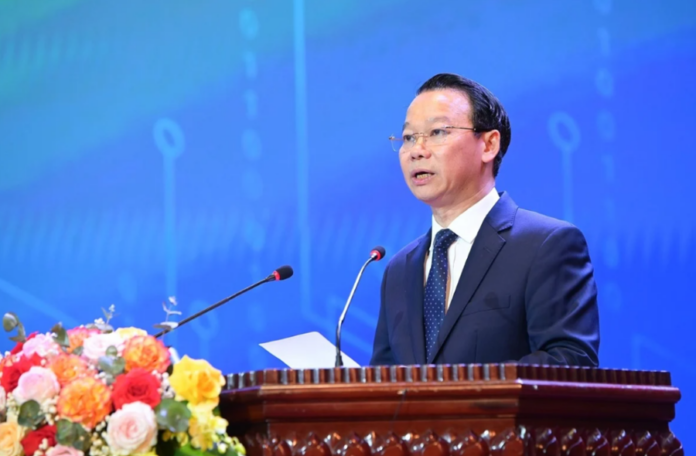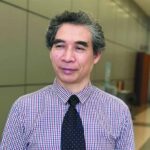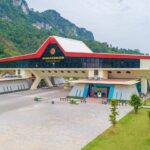On May 10, 2025, in Bac Ninh province, the Ministry of Agriculture and Environment, in collaboration with the Bac Ninh People’s Committee, organized a conference to deploy the “Plan for implementing Resolution No. 57-NQ/TW of the Politburo on breakthroughs in the development of science, technology, innovation and national digital transformation” in the fields of agriculture and the environment. The conference was held in a hybrid format, with 1,114 delegates attending in person in Bac Ninh and nearly 10,000 online viewers.
In the morning plenary session, delegates were presented with an overview of the status and solutions for the development of science, technology, innovation, and digital transformation, along with the orientation of the National Assembly and the Government in this regard. The afternoon sessions were divided into four focus groups: Crop Production – Plant Protection – Forestry; Livestock – Veterinary – Aquaculture; Environment – Water Resources; and Hydraulic Engineering – Disaster Prevention – Climate Change.
VIETNAM’S OPPORTUNITY TO EMERGE AS A DEVELOPED NATION
In his opening remarks, Minister of Agriculture and Environment, Du Do Duy, shared that Resolution 57-NQ/TW, issued by the Politburo on December 22, 2024, establishes a strategic orientation with a clear vision: “Science, technology, innovation, and digital transformation are not only decisive factors for sustainable development but also present the ‘best opportunity’ for Vietnam to emerge as a developed, prosperous, and powerful nation in the new era.”
According to the Minister, agriculture and the environment are currently facing significant pressure from climate change, resource depletion, environmental pollution, and water security issues. The traditional agricultural production model, reliant on manual labor, high input costs, and low added value, is no longer suitable.
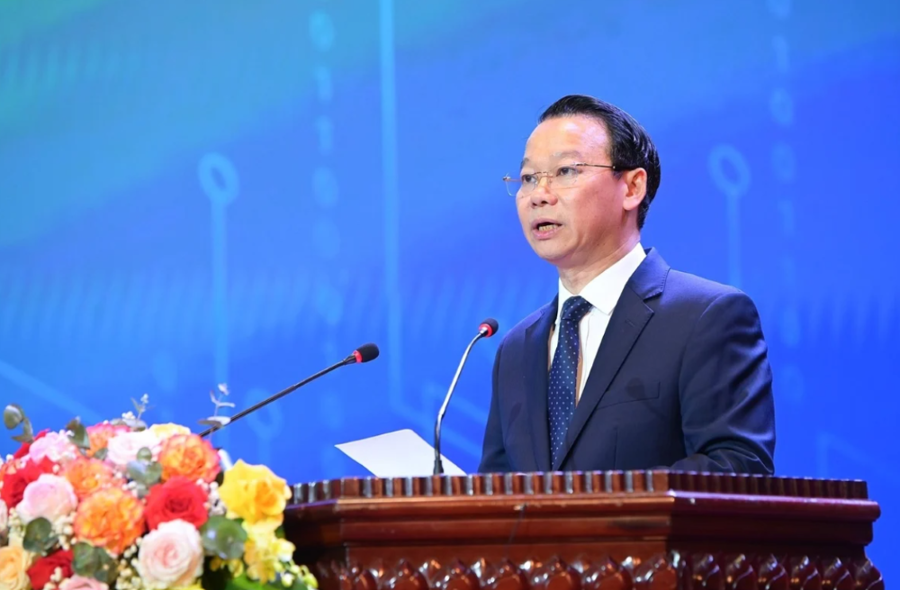
Minister Du Do Duy outlined five key areas for discussion by the delegates.
First, improve institutions, policies, and administrative procedures to remove bottlenecks and facilitate innovation in both the public and private sectors. Effective mobilization of domestic and foreign resources for science and technology will play a pivotal role.
Second, identify and focus on areas of science and technology with high potential, such as biotechnology and genetic engineering, to enhance product quality, conserve resources, and create added value in agriculture and the environment.
Third, reorganize the system of public scientific and technological organizations towards a more streamlined, efficient, competitive, and knowledge-disseminating structure. The assignment of scientific tasks will shift to a mechanism of ordering and bidding, closely linked to production practices and aimed at commercializing research outcomes.
Fourth, develop high-quality human resources in the fields of science, technology, and digital transformation, ensuring a strong connection between training, research, and practical application.
Fifth, promote comprehensive digital transformation in policy formulation, governance, production, and consumption, so that digital data, technology, and the digital economy become competitive advantages in the new phase of development.
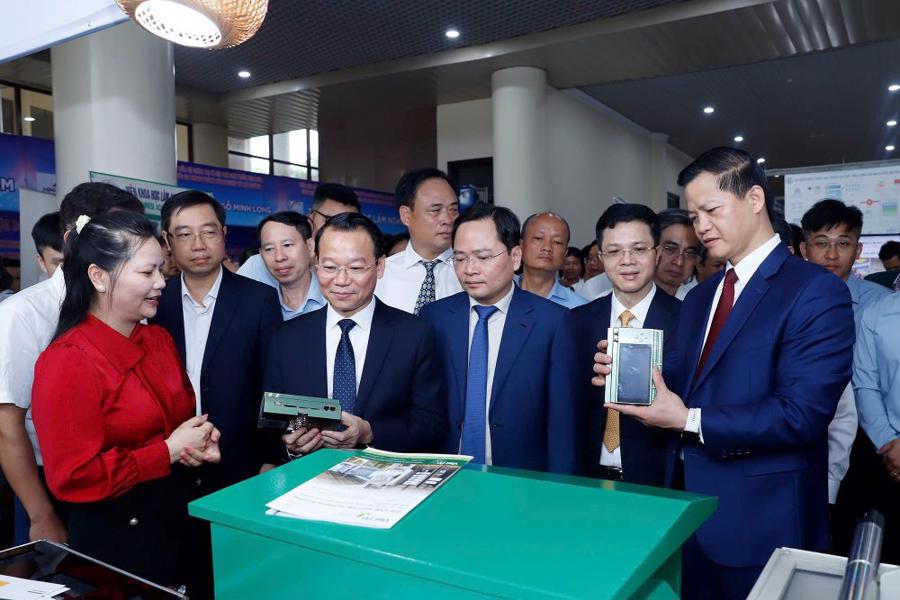
Dr. Nguyen Van Long, Head of the Science and Technology Department of the Ministry of Agriculture and Environment, acknowledged that despite having a workforce of over 11,400 scientists, the sector’s productivity remains modest. This is partly due to the lack of specific and competitive policies that encourage and incentivize innovation. The Ministry has taken note of this and has officially proposed to the Ministry of Science and Technology to suggest amendments to the Law on Science and Technology towards a more open and practical approach.
According to Dr. Long, in the total budget allocated for science and technology, only about 46% is directly spent on scientific research activities, with the remainder going towards maintaining the apparatus, salaries, and administration. This largely negates the potential for creating research products with commercial or practical value.
“In reality, we have great potential, but we are still entangled in outdated management thinking and lack a substantive autonomy mechanism for scientific and technological organizations in terms of finance, tasks, and personnel. While enterprises can borrow capital and invest in research, scientific organizations are constrained by administrative frameworks and lack decision-making authority and flexibility,” said Dr. Long, highlighting the current challenges.
ENTERPRISES AND PRIVATE SECTOR ENTHUSIASTIC ABOUT RESEARCH IN SCIENCE AND TECHNOLOGY
Speaking at the conference, Professor Laurent Marc El Ghaoui, Vice Rector of VinUni University, shared the university’s achievements in researching urban transportation systems, advanced solutions for sea farming, and meteorological monitoring.
“We are committed to investing our intelligence and technology to transform scientific ideas into practical solutions. VinUni’s orientation is to continuously expand its role in the science and technology ecosystem, contributing to the development of a green economy, smart agriculture, and a sustainable society,” emphasized Professor Laurent Marc El Ghaoui.
Dr. Nguyen Van Diep, General Director of AVAC Joint Stock Company, proposed that the government provide support and assign additional scientific and technological tasks to enterprises in developing new generations of African swine fever vaccines that are more effective and suitable for practical production.
Mr. Nguyen Duc Truong, General Director of Dai Thanh Company, pointed out the current challenges in agriculture, including inaccuracies in the operation of agricultural machinery, such as planters unable to move in straight lines, drones unable to fly accurately, harvesters unable to calculate yield, and plows unable to adjust depth. In the coming years, precision agriculture will become an inevitable trend, supported by new technologies such as the Internet of Things (IoT), Big Data, and AI-powered data analysis.
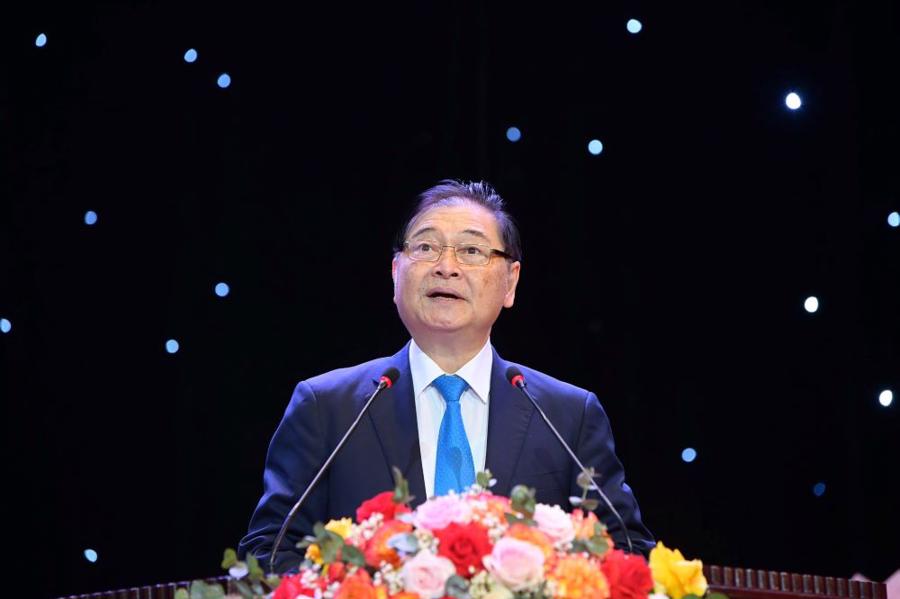
At the conference on the implementation of Resolution No. 57-NQ/TW of the Politburo, Dr. Phan Xuan Dung, President of the Vietnam Union of Science and Technology Associations and former Chairman of the National Assembly’s Committee for Science, Technology, and Environment, shared that the Union has 3.7 million members, including over 2.2 million intellectuals and 574 scientific and technological organizations nationwide. They have successfully fostered a vibrant research movement, attracting a large force in key areas such as agriculture and the environment.
Dr. Dung recommended that ministries and sectors increase the ordering of research and make effective use of scientific results, especially in areas arising from practical needs such as poverty eradication and environmental protection. Additionally, it is crucial to enhance communication and promote knowledge dissemination to people in remote and rural areas and to honor intellectuals to create further impetus for development in the new era.

During the conference, the Ministry of Agriculture and Environment signed cooperation agreements for the development of science, technology, and innovation with the Vietnam Union of Science and Technology Associations and the Vietnam Construction Federation.
Dr. Nguyen Van Long, Head of the Science and Technology Department, signed cooperation agreements with enterprises and industry associations. The signatories included Dabaco Group, MASAN Group, VinUni University under Vingroup, BAF Vietnam Agricultural Joint Stock Company, PAN Group Joint Stock Company, Thanh Thanh Cong – Bien Hoa Joint Stock Company, and BSB NANOTECH Company.
Unleashing Financial and Digital Solutions for SMEs: VIB’s Revolutionary Approach
International Bank (VIB), in collaboration with its partners Visa and Vietnam Payment Solutions Joint Stock Company (VNPAY), is proud to unveil a comprehensive financial and digitization solution designed specifically to empower Vietnamese small and medium-sized enterprises (SMEs) to enhance their governance, optimize their operations, and drive sustainable growth.
“Bridging the Gap: Forging Connections Between State-Owned Enterprises and the Private Sector.”
State-owned enterprises need to continue to thrive and play a pivotal role in the country’s rapid and sustainable development. With a well-directed mindset, appropriate strategies, and effective actions will follow suit, leading to success. A crucial aspect of this direction is fostering a strong and efficient connection between state-owned enterprises and the private business sector.
The Evolution of Vietnam’s E-commerce Landscape: An “Ever-changing, Ever-challenging” Narrative
Users today can view products on TikTok, order on Shopee, lodge complaints via Facebook, and return items in-store. This paints a picture of diverse, ever-evolving, and challenging consumer behavior.

